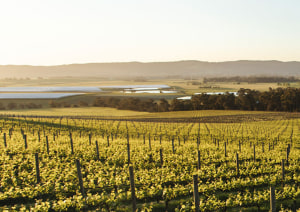Our collective understanding tells us that recycling is good for the environment. It redirects valuable materials out of landfill, avoids the use of virgin material when reprocessed and incorporated as recycled content and generally reduces energy consumption in material manufacture compared with using 100 per cent virgin materials.
Recycling targets have traditionally been a focus of the Australian Packaging Covenant (APC) and the Sustainable Packaging Guidelines (SPG) provides guidance on how to consider this issue in packaging design.
The act of consumers placing used packaging materials in the recycling bin fortnightly provides a vehicle for consumers to play some part in reducing environmental impacts associated with the end of life management of packaging materials.
The key for successful consumer participation is designing with the knowledge of what materials are collected for recycling, the compatibility of materials in the recycling process and using appropriate labelling and communication on pack – making it easy for the consumer to know what to do.
In April 2012, the Australian Food and Grocery Council (AFGC) released its Future of Packaging White Paper that provides a strategic and proactive direction for packaging for sustainability in the Australian context.
The AFGC views the White Paper as a mechanism to engage with other stakeholders in the packaging supply chain including other industry associations, government department and individual companies, and to collaborate on the broader issues of packaging sustainability.
Of the eighteen projects identified, several are already underway including the ‘Labelling for recovery’ project with the aim of launching in 2013, and the ‘Design for recovery guidelines’ project, which sees the Australian Council of Recyclers updating and extending marketing guides.
The Australian Packaging Covenant Council is also funding the development of guides on packaging materials due for completion in September 2012.
The use of the term recovery broadens the focus from purely mechanical recycling to include organic recovery and other waste management processes including energy recovery.
As consumers digest sustainability messaging, education and communication, semantics are important.
Terms that confuse very specific issues can invariably lead to an increase in market cynicism.
To claim something as recyclable is to highlight a potential characteristic of a material or packaging that can be diverted from the waste stream through available processes and reprocessed into new materials or products (ISO 14021).
To refer to something as recycled is the action of this potential, and is not always possible within current recovery infrastructure or market economics.
To claim that a product is recyclable when in reality it is not recycled would be viewed by many as blurring the edges at best. Moreover, recycling is not a perpetually efficient process; recovered rates reduce through the system, based on recovered quality needs, contamination, infrastructure limitations and commodity market dynamics.
Life cycle impacts associated with issues including sourcing of materials, regional specificity, manufacturing energy efficiency and material weight are also important issues to consider in conjunction with the recyclability and end-of-life management of packaging.
These issues generally need specific attention in claims, with non-specific messaging problematic to justify.
Getting specific, like other aspects such as performance or ingredients starts to make sense. With heightened environmental awareness coupled with hyper information access, companies continue to tackle this as either a threat, or as is increasingly apparent, an opportunity.





